Updated Jan. 10
An Attack in the N.Y. Times Helped Define Him
Audie Cornish Joins CNN
Fox News Elevates Host Who Offended Asians
Symone Sanders, Former Harris Aide, Joins MSNBC
Lani Guinier, Stung by Media Malpractice, Dies
Alcindor Calls Out Trumpers’ ‘Sense of Entitlement’
2 Haitian Journalists Killed, ‘Criminal and Barbaric’
Short Takes: Perry Bacon Jr.; Committee to Protect Journalists; Mike Kellogg; Dax Tejera; Sports Journalism Institute; Pivot Fund; honoring Roscoe Nance.
Support Journal-ismsAn Attack in the N.Y. Times Helped Define Him
Ask some authorities about Sidney Poitier’s relationship with the news media, and you might hear that they got along famously.
“I think the news media generally boosted Poitier’s career,” Poitier biographer Aram G Goudsouzian (pictured), history professor at the University of Memphis, responded to a Journal-isms query after the Friday announcement of the actor and director’s death at 94.
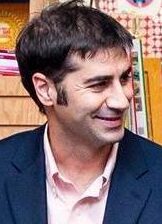 “He was the subject of many admiring profiles over the years. He tended to be forthcoming, and he had a terrific personal charm.
“He was the subject of many admiring profiles over the years. He tended to be forthcoming, and he had a terrific personal charm.
“In the 1960s, he did not have a press agent, which was unusual. But he was very careful about which opportunities he chose. He once said: ‘The statements you put in print aren’t just for the moment. They stay with you forever, so you must take complete responsibility for them.’ (As a biographer later poring through his clippings, I definitely appreciated that).
“African American press, as you might imagine, boosted Poitier all the time. He was the subject of profiles in Ebony as well as constantly mentioned in Black papers. The biggest difference, from my vantage as a biographer, was that the Black press reported more consistently on some of his civil rights activity, such as his appearances at fundraisers.”
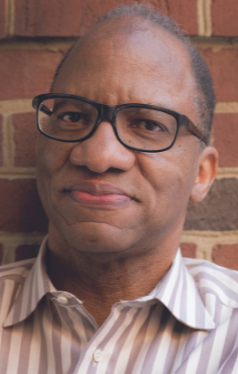 Wil Haygood (pictured), the journalist and author of “Colorization: One Hundred Years of Black Films in a White World,” published in October, messaged, “Sidney was especially kind to the Black press. He did many interviews with Jet, Ebony, and Sepia magazines, often saving movie news that he knew they’d love to have. It also goes without saying that the Black press finally had a reason to give more space to movie stories/news with Poitier’s rise.”
Wil Haygood (pictured), the journalist and author of “Colorization: One Hundred Years of Black Films in a White World,” published in October, messaged, “Sidney was especially kind to the Black press. He did many interviews with Jet, Ebony, and Sepia magazines, often saving movie news that he knew they’d love to have. It also goes without saying that the Black press finally had a reason to give more space to movie stories/news with Poitier’s rise.”
But there was also that video from the tumultuous late 1960s, now circulating on social media, showing Poitier’s impatience with reporters’ failure to ask questions that did not focus on his race. Poitier was asked about Black hard-liner H. Rap Brown of the Student Non-Violent Coordinating Committee, urban uprisings and Dr. Martin Luther King Jr. Poitier interrupted the news-conference questioning by turning the tables.
“I would like to ask you a question,” the iconic actor asked. “Why is it that you guys are hounds for bad news?
“Why is it that . . . It seems to me that at this moment this day you could ask me many questions about many positive and wonderful things that are happening in this country, but we gather here to pay court to sensationalism; we gather here to pay court to negativism.
“You guys have a job to do.
“I’m a relatively intelligent man. There are many aspects to my personality that you can explore. I think . . . very constructively, but you sit here and ask me such one-dimensional questions about a very tiny area of our lives. You ask me questions that fall continually within the Negro-ness of my life; you ask me questions that pertain to the narrow scope of the summer riots.
“I am artist. Man. American. Contemporary.
“I am an awful lot of things so I wish you would . . . pay me the respect due, and not simply ask me about those things.” Poitier was applauded.
Whether Poitier got along well with the news media might depend on the stage of his career.
In the beginning, he was sent out to Black newspapers and radio stations to publicize early films like “Blackboard Jungle,” from 1955.
When his visibility rose and his film persona attempted to keep pace with the volatile demands of the civil rights and then Black Power eras, Poitier was sensitive to criticism that he was not meeting competing expectations. “I felt very much as if I were representing 15, 18 million people with every move I made,” he wrote in his 2000 memoir, “The Measure of a Man: A Spiritual Autobiography.”
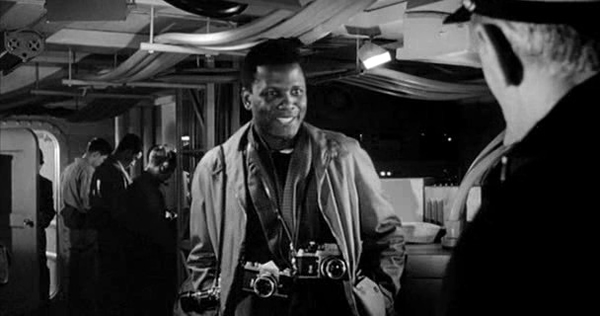
In that book, Poitier titled an entire chapter after the headline over a critical New York Times piece by a Black playwright, “Why Do White Folks Love Sidney Poitier So?”
Craig Adrian Smith, a University of Florida doctoral student at the time, wrote in 2010, the “one article that has raised Poitier’s rancor more than any other is the Sunday, 10 September 1967, New York Times article written by Clifford Mason. Mason’s article ‘Why Do White Folks Love Sidney Poitier So?’ has had an indelible effect on Poitier’s perception of how he thinks the public sees him and his career.”
Authors Lester Keyser and Andre Ruszkowski “suggest that ‘Mason’s barbs were doubtlessly influential in shaping the development of Poitier’s career. Many of Poitier’s roles for the next few years may actually be viewed as attempts on his part to rebut Mason’s attacks and to refute the arguments of other militant critics . . . So traumatized by the vitriolic lambasting he received in Mason’s article, Poitier returns to this event time and again in his autobiographies.
“Mason’s very public and personal attack, however, is only one of the defining moments in Poitier’s life. . . .”
In “The Measure of a Man,” Poitier said as much: “There was more than a little dissatisfaction rising up against me in certain corners of the black community. The issue boiled down to why I wasn’t more angry and confrontational. New voices were speaking for African-Americans, and in new ways. Stokely Carmichael, H Rap Brown, the Black Panthers. According to a certain taste that was coming into ascendancy at the time, I was an ‘Uncle Tom’, even a ‘house Negro’, for playing roles that were non-threatening to white audiences, for playing the ‘noble Negro’ who fulfils white liberal fantasies.’ “
Small wonder that Burhan Wazir wrote in The Guardian in 2000 that “Poitier interviews are a rarity — he has always shrouded his lives, both personal and professional, in secrecy.”
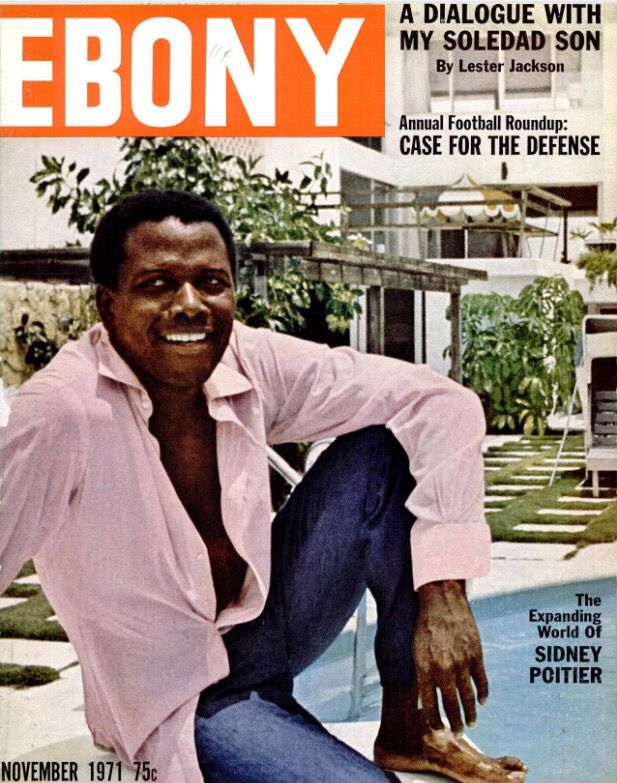 Still, in “Measure of a Man,” Poitier name-dropped journalist Charlayne Hunter-Gault, praising her courage in desegregating the University of Georgia in 1961 with fellow student Hamilton Holmes.
Still, in “Measure of a Man,” Poitier name-dropped journalist Charlayne Hunter-Gault, praising her courage in desegregating the University of Georgia in 1961 with fellow student Hamilton Holmes.
In the early 2000s, “When I was in South Africa for Oprah’s school opening, Charlayne Hunter-Gault was kind enough to invite me to her lovely home there,” Poitier wrote. “With the tireless energy that made it hard to believe she was turning sixty. Charlayne was moving about the continent as an indispensable eye for others who live outside Africa and have an interest there. She had been a wonderful correspondent for PBS, was writing a book, and was doing special pieces for various networks in Europe and Africa.”
By the late ’70s, Poitier had become like royalty in Ebony and Jet.
Aldore Collier, who wrote for Jet and Ebony for 26 years and covered Los Angeles for 25, said that at Johnson Publishing, only higher-ups were permitted to interview Poitier.
“Interviews and quotes that Ebony and Jet got from Sidney Poitier were done by executives only — like Lerone Bennett. Way above my pay grade,” Collier messaged Journal-isms.
“I did get to chat with him and wife Joanna a time or two at events. He was very pleasant but guarded. . . .
“Media like Ebony and Jet kept the legend alive as we never let readers forget how pivotal he was to essentially creating Black Hollywood and spurring on the civil rights movement.”
 On Facebook Friday, Maurice DuBois (pictured), an anchor at WCBS-TV in New York, shared his own conversation with Poitier:
On Facebook Friday, Maurice DuBois (pictured), an anchor at WCBS-TV in New York, shared his own conversation with Poitier:
“Me: Will you do an interview with me?
“SP: No, thank you!
“Me: What do you mean, No!?
“SP: I HATE interviews. I mean, I like your work, but I just don’t do them.
“Me: Why do you hate them, they should be easy for you — you’re one of the greatest actors of all time!
“SP: Because I’m shy! I just don’t like it.
“Me: Really?? Even after all those incredible performances you’ve given the world..?
“SP: I’ll tell you a secret: performing gave me a way to take on my biggest fear!
“We talked for maybe 10 more minutes, and I soaked in everything this greatest of men was saying. His eyes — those piercing, sincere eyes — locked in on mine, and that voice — it resonated like no other, even up close — and he dropped some serious wisdom on me: ‘Going right after my biggest fear made me feel alive, and vital! Yes, I was nervous. But when I performed I harnessed those nerves and took them on. And overcame them. It energized me. Don’t you ever lose that!!’
“That was at a benefit in Manhattan in January, 2000.
“And I will always remember his words.
“Thank you, Sir.”
- Helena Andrews-Dyer, Washington Post: Sidney Poitier changed the Oscars in 1964. The academy is still grappling with the promise of that moment.
- Gwen Aviles, Insider: Sidney Poitier ‘wasn’t afraid’: after death, many reflect on actor’s civil rights and cinematic legacy
- Bijan C. Bayne. Washington Post: How Sidney Poitier changed Americans’ perception of Blackness
- Geoff Bennett with Jacqueline Stewart, “PBS NewsHour”: How Sidney Poitier’s work pushed past white limitations on Black talent
- Charles M. Blow, New York Times: My Dinner With Sidney Poitier
- Stacy M. Brown, National Newspaper Publishers Association: IN MEMORIAM: Legendary Actor, Sidney Poitier, 94, Has Died
- Christie D’Zurilla, Los Angeles Times: Hollywood celebrates Sidney Poitier and how he ‘epitomized dignity and grace’
- Dwight Garner, New York Times: A Sweeping New History Looks Back at 100 Years of Black Filmmaking (Oct. 18)
- Steven Gaydos, Variety: Why Sidney Poitier Is the Most Important Actor in American History
- Wil Haygood, Washington Post: Sidney Poitier gave Black Americans a reason to fall in love with movies
- Stephanie Holland, The Root: Sidney Poitier, Groundbreaking Legend, Passes Away at 94
- Adam Howard, The Grio: Sidney Poitier has many legacies, but his acting should not be lost among them
- Norman Jewison, as told to Stephen Galloway, Hollywood Reporter: ‘In the Heat of the Night’ at 50: Why Sidney Poitier Wouldn’t Go South of the Mason-Dixon Line (2017)
- National Urban League: Few Artists Have Contributed More to the Civil Rights Movement than Sidney Poitier
- New York Times: Tributes to Sidney Poitier Pour in From Hollywood and Beyond (several stories)
- Gene Seymour, CNN: Sidney Poitier was aware of the tightrope history asked him to walk
- Savannah Taylor, Ebony: A Look Back at Some of EBONY and JET’s Most Iconic Sidney Poitier Covers
- Walter Ray Watson, NPR: < Sir, we loved you: Sidney Poitier dies at 94
- Stephanie Zacharek, Time: Why All Actors — and the World — Owe a Debt to Sidney Poitier
- YouTube: Top 10 Greatest Sidney Poitier Performances (video)
Audie Cornish Joins CNN
 “Audie Cornish (pictured) is joining CNN as an anchor and correspondent for CNN+, the much-anticipated streaming subscription service that is set to debut this spring,” CNN announced Monday. “Cornish will host a weekly CNN+ show and contribute to CNN+’s slate of live programming. She will also host a new podcast for CNN Audio and will appear on CNN covering national, political and breaking news.”
“Audie Cornish (pictured) is joining CNN as an anchor and correspondent for CNN+, the much-anticipated streaming subscription service that is set to debut this spring,” CNN announced Monday. “Cornish will host a weekly CNN+ show and contribute to CNN+’s slate of live programming. She will also host a new podcast for CNN Audio and will appear on CNN covering national, political and breaking news.”
Just last month, CNN announced that it had snared “Fox News Sunday” host Chris Wallace as an anchor for the new streaming service, set to debut in the first quarter of this year. Wallace had spent nearly two decades at Fox, and, like Cornish, was vague about his plans. He told viewers only that “I want to try something new, to go beyond politics to all the things I’m interested in. I’m ready for a new adventure. And I hope you’ll check it out.”
Cornish, a co-host of NPR’s signature “All Things Considered” and a host at NPR’s magazines since 2011, left NPR on Friday, prompting a discussion about the number of people of color who have left the network. She was not specific about her plans, saying, “It’s time for me to try my hand at new journalism projects and embark on new adventures.”
Cornish said in Monday’s news release, “I am very excited to join CNN and the CNN+ team. There are fresh stories to be told and new ways to tell them. CNN has a dynamic system of reporters and storytelling channels. I am thrilled to be a part of it. . . .”
“Cornish will be based in CNN’s Washington, DC bureau and starts in February,” the release said.
Her “All Things Considered” colleagues paid tribute to Cornish on her final program there on Friday.
Co-host Ari Shapiro said, “Some of my favorite moments at ‘All Things Considered’ have been in the studio with Audie when our microphones were off, laughing so hard we were gasping and crying, which is all well and good until your microphone opens and you have to read an introduction to a piece about genocide or inflation.” (Added Jan. 10)
- Jon Lafayette, nexttv.com: Comcast To Carry CNN Plus in New Deal with WarnerMedia
The Asian American Journalists Association said at the time that it does “not accept being busy with the election coverage as an adequate excuse to allow a racist segment to air. Not having time to edit what was ‘over the line’ is a reflection of a lack of sensitivity toward diverse coverage.” (Credit: YouTube)
Fox News Elevates Host Who Offended Asians
Jesse Watters, the longtime Fox News Channel personality who in 2016 produced what was then called “the most racist Fox News segment ever,” will take over the network’s 7 p.m. hour, extending a lineup of conservative opinion hosts that now starts at 7 p.m. and lasts until midnight, Brian Steinberg reported Monday for Variety.
“Watters (pictured, below) will continue to serve as a co-anchor of ‘The Five,’ the early-evening program that has recently enjoyed a viewership surge. But he will give up his weekend program, ‘Watters’ World.’ The new 7 p.m. program, ‘Jesse Watters Primetime,’ will launch January 24.”
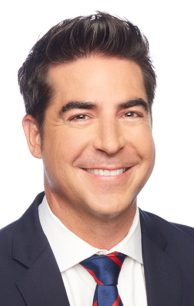 When the COVID pandemic surged in 2020, Watters “floated some racist tropes about China and demanded that the country formally apologize over the novel coronavirus,” David Choi reported that April for Business Insider. The anti-Asian sentiments Watters magnified were so costly that New York Mayor Bill DeBlasio ate at a Chinese restaurant in Queens’ Flushing neighborhood to show his support for Asian Americans and Asian American businesses.
When the COVID pandemic surged in 2020, Watters “floated some racist tropes about China and demanded that the country formally apologize over the novel coronavirus,” David Choi reported that April for Business Insider. The anti-Asian sentiments Watters magnified were so costly that New York Mayor Bill DeBlasio ate at a Chinese restaurant in Queens’ Flushing neighborhood to show his support for Asian Americans and Asian American businesses.
Four years earlier, as recounted in 2016 by Cary Chow, former ESPN “SportsCenter” anchor, “The rough assignment was for Watters to head to Chinatown to get Chinese opinions on Donald Trump.
“As Watters faced an onslaught of backlash, he tweeted a flippant non-apology that his segment is meant to be ‘tongue-in-cheek.’ Unfortunately, the foot-in-mouth piece misses its target like Dick Cheney hunting with Harry Whittington. Watters manages to check off a litany of lazy Asian stereotypes, including broken accents, foot massages, and Mr. Miyagi. The latter a timely reference that ‘The Daily Show’ comedian Ronny Chieng compared to ‘making fun of Americans for “Saturday Night Fever” and Mr. T.‘ In fairness, ridiculing Mr. T is never acceptable.
“A particularly ignorant touch in this story about the Chinese involved Watters asking a man if he knows karate (Japanese), then sparring with him in a taekwondo studio with a South Korean flag in the background. As it were, that karate man, Qanta Shimizu, said on Facebook the experience left him uncomfortable and ashamed. . . .”
The Asian American Journalists Association demanded an apology. (Added Jan. 10)
- Oliver Darcy, CNN: Fauci calls for Fox News host to be fired ‘on the spot’ for ‘kill shot’ comments (Dec. 22)
- Nikhil Sonnad, Quartz: All of the things we learned from Fox News’ racist “Chinatown” segment (Oct. 5, 2016)

Symone Sanders, Former Harris Aide, Joins MSNBC
Symone D. Sanders, the Democratic strategist who until last month was senior adviser to Vice President Kamala Harris, is joining MSNBC “to host new programs across cable and streaming,” the network announced Monday.
“Beginning this spring, the government and presidential campaign trail alum and celebrated author will host MSNBC on the weekends and Peacock’s The Choice from MSNBC. She will be based in Washington, D.C.,” the announcement said.
It added, “Sanders’ announcement comes off the heels of MSNBC’s strategic focus on streaming in 2021 with the launch of The Choice from MSNBC on Peacock, the streaming destination for live, in-depth perspective and news. Sanders’ show will be featured alongside original programming hosted by Zerlina Maxwell, Mehdi Hasan and Ayman Mohyeldin on The Choice from MSNBC.”
Brian Steinberg wrote of Sanders for Variety, “She’s the latest personality to join the NBCUniversal-backed cable-news outlet under a new top executive, Rashida Jones, as executives seek to gain traction in new-media spaces while facing turnover among some of the network’s most familiar personalities.”
In December, The Washington Post’s Cleve R. Wootson Jr. and Tyler Pager called Sanders “the highest-profile member of an end-of-year exodus that includes communications chief Ashley Etienne and two other staffers who help shape the vice president’s public image. Sanders told The Washington Post her departure is not due to any unhappiness or dysfunction, but rather because she is ready for a break after three years of the relentless pressure that came with speaking for and advising Biden and Harris while navigating a global pandemic.”
Sanders told Steinberg, “I wanted to be at a network that had an already established record in the streaming world and would have a show on streaming and on linear and was one that wasn’t just an experiment,” adding that “reaching people who don’t live and breathe the ins-and-outs of Washington, D.C., means venturing beyond traditional media.
Steinberg continued, “A number of MSNBC’s newer hosts, including Mehdi Hasan and Ayman Mohyeldin, also lead shows that appear on both the cable-news network as well as ‘The Choice from MSNBC,’ an outlet on the streaming-video hub, Peacock. Meanwhile, MSNBC is filling some of its early weekend hours with repeats of shows from Hasan and Zerlina Maxwell that run first on streaming.”
The New York Times’ Michael M. Grynbaum wrote of Sanders, “In her mid-20s, she became national press secretary for Senator Bernie Sanders’s 2016 presidential campaign, then joined CNN as a commentator with a talent for rapid-fire retorts and getting under the skin of Republicans. When a Republican official told her to ‘shut up’ during a live interview, she parlayed the viral moment into the title of her memoir: ‘No, You Shut Up: Speaking Truth to Power and Reclaiming America.’ ” (Added Jan. 10)
- Brian Steinberg, Variety: TV’s Biggest Newsrooms Poised for 2022 Surge in Streaming Wars (Dec. 28)
The significance of Lani Guinier’s work is discussed by a panel on the digital program “Roland Martin Unfiltered.”
Lani Guinier, Stung by Media Malpractice, Dies
Lani Guinier, the law professor whose 1993 nomination by President Bill Clinton to head the Justice Department’s Civil Rights Division was withdrawn after distorted representations of her positions on race, fanned by conservatives and inaccurate media accounts, died Friday of complications of Alzheimer’s disease. She was 71.
Guinier eventually became the first woman of color to receive a tenured professorship at Harvard Law School.
In appearances before the National Association of Black Journalists in 1993 and the Trotter Group of African American columnists in 2004 (scroll down), Guinier said the forces against her nomination succeeded in large part because there is not enough racial or philosophical diversity in the nation’s newsrooms, and because “too many journalists are stenographers to power.”
What she actually advocated was in line with many of today’s advocates of voting rights. “I am quite certain that she is neither radical or dangerous — except, perhaps, to voting systems that freeze out minority voters,” Yale law professor Stephen L. Carter wrote in the foreward to Guinier’s 1994 “The Tyranny of the Majority: Fundamental Fairness in Representative Democracy.“
Sen. Patrick Leahy, D-Vt., said Guinier “was tried in the press.”
Carter wrote, “The noise began when conservative activist Clint Bolick fired a shot across the nomination’s bow in an article in the Wall Street Journal on April 30, 1993, criticizing Guinier as an exponent of a racial quota system for voting.
” ‘[S]he demands equal legislative outcomes, requiring abandonment not only of the ‘one person, one vote’ principle, but majority rule itself.’ The Journal in its wisdom, chose as the headline, ‘Clinton’s Quota Queen.’ And the fight was on.”
While conservatives and their media led the charge, the book’s jacket notes that “newspapers from across the political spectrum cited select quotes” from her legal writings, which few had read, “to support their claim that she was an anti-democratic, divisive, ‘Quota Queen.’ “
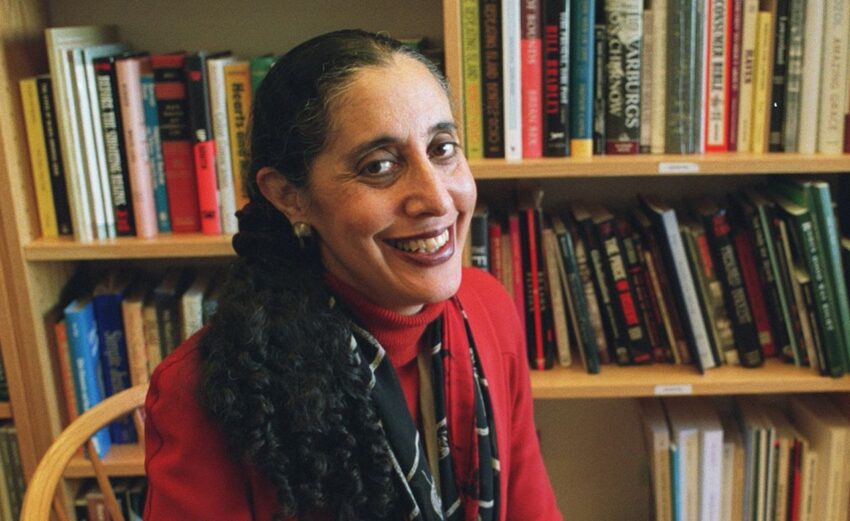
A 1993 post-mortem by Laurel Leff in the Columbia Journalism Review concluded, “The press was manipulated by political opponents who were quoting Guinier out of context. Media representatives are guilty of not thoroughly researching the writings in question. Instead, a caricaturized representation of Guinier and her philosophies was perpetuated by an uninformed. media quick to seize the negative sound bites of her detractors, chief among whom was Clint Bolick.”
 Leff (pictured), then a journalist with a law degree, now journalism professor at Northeastern University, wrote, “Scholarly articles should not, of course, be immune from scrutiny in a confirmation battle.
Leff (pictured), then a journalist with a law degree, now journalism professor at Northeastern University, wrote, “Scholarly articles should not, of course, be immune from scrutiny in a confirmation battle.
“But two standards ought to be met: one, that the selected passages accurately reflect the author’s overall views and, two, that the writings are relevant to the nominee’s potential responsibilities. Of course, press coverage of all bodies of work should meet those standards. But the length and complexity of academic writing may make it particularly difficult [to] summarize and particularly easy to distort. In addition, ‘scholarship is a conversation,’ as Yale law professor Stephen L. Carter puts it, in which academics throw out ideas partly to ‘provoke a response.’ Journalists should be hesitant to treat such tentative recommendations as concrete policy prescriptions.
“No such reticence was exhibited in the coverage of Lani Guinier’s scholarly writings. Too few reporters questioned whether her theorizing was relevant to a third-tier, though important, job within the Justice Department. Too many reporters uncritically accepted Bolick’s and other conservatives’ depictions of her views, the same quotes appearing over and over again in such publications as Newsweek, the Los Angeles Times, and U.S. News & World Report. Too few reporters made a concerted effort to explain her views on her own terms before offering others’ criticisms of them.
“And too many reporters substituted code words, such as ‘quotas” ‘affirmative action,’ and ‘reverse discrimination,’ for a genuine dialogue on the sensitive subject upon which her writings focus — the continuing effort to thwart blacks’ effective participation in the political process. The result was a portrait that University of Chicago law dean and constitutional scholar Geoffrey Stone calls a ‘cartoon.’
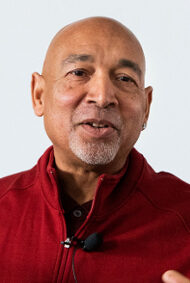 Derrick Z. Jackson (pictured), who organized Guinier’s appearance before the Trotter Group, when Jackson was a Boston Globe columnist, messaged Journal-isms, “Lani Guinier was a courageous giant in her profession and candid with journalists as evidenced by her 1993 appearance at NABJ after being dumped by President Clinton for Assistant Attorney General for Civil Rights. She and her husband Nolan Bowie, an emeritus fellow at Harvard’s Kennedy School of Government, were great friends of the Trotter Group , both speaking to us in our 2004 meeting at Harvard on democracy, unequal education and the loss of privacy on the Internet.
Derrick Z. Jackson (pictured), who organized Guinier’s appearance before the Trotter Group, when Jackson was a Boston Globe columnist, messaged Journal-isms, “Lani Guinier was a courageous giant in her profession and candid with journalists as evidenced by her 1993 appearance at NABJ after being dumped by President Clinton for Assistant Attorney General for Civil Rights. She and her husband Nolan Bowie, an emeritus fellow at Harvard’s Kennedy School of Government, were great friends of the Trotter Group , both speaking to us in our 2004 meeting at Harvard on democracy, unequal education and the loss of privacy on the Internet.
“Had Democrats and liberals taken her ideas of representative government seriously, instead of cowering to the misinformation attack of the right-wing and conservative media that falsely labeled her quota queen, we might not have quite the assault on democracy that we are witnessing at this moment.”
- Jessica Gresko and Gary Fields, Associated Press: Civil rights lawyer, professor Lani Guinier dead at 71
- Harvard Law School: Guinier and Ogletree honored by the Maynard Institute (2013)
- Kaylois Henry and Sherry Robinson, Tampa Bay (Fla.) Times: Lani Guinier states her case to journalists (July 23, 1993; updated Oct. 9, 2005)
- Bryan Marquard, Boston Globe: ‘A towering figure’ in American law, Harvard professor Lani Guinier dies at 71
- Brett Milano, Harvard Law Today: In Memoriam: Lani Guinier 1950 – 2022
- Clarence Page, Chicago Tribune: America and Race: Still Struggling in a State of Denial (on NABJ convention; July 23, 1993)
- TaRessa Stovall, Forward: Lani Guinier drew on her Black and Jewish roots in a life of outspoken activism
Alcindor Calls Out Trumpers’ ‘Sense of Entitlement’
In her final appearance as correspondent on the “PBS NewsHour” Friday, Yamiche Alcindor called out the double standard she believes exists between treatment of Black and brown protesters and of the overwhelmingly white crowd that stormed the Capitol on Jan. 6.
 Alcindor (pictured), who is moving to NBC News but will continue to host PBS’ “Washington Week,” broke from the traditional just-the-facts pose idealized by many as host Judy Woodruff asked correspondents Lisa Desjardins, Alcindor and Amna Nawaz, “What stays with you, what sticks in your mind as you go back and you think about that day?” It became personal for all three. Desjardins was inside the Capitol, Nawaz was outside the building as the crowd gathered and Alcindor was at the White House.
Alcindor (pictured), who is moving to NBC News but will continue to host PBS’ “Washington Week,” broke from the traditional just-the-facts pose idealized by many as host Judy Woodruff asked correspondents Lisa Desjardins, Alcindor and Amna Nawaz, “What stays with you, what sticks in your mind as you go back and you think about that day?” It became personal for all three. Desjardins was inside the Capitol, Nawaz was outside the building as the crowd gathered and Alcindor was at the White House.
“The memory that sticks most with me watching the Capitol being attacked is that sense of entitlement that these white protesters had, to break in,” Alcindor said.
“And I kept picturing what it might have been like had these people been the protesters that I covered so closely in Ferguson, the Black people that were demanding justice and police accountability. It’s very easy to see those people being shot, frankly, dead on the steps of the Capitol if they were Black or brown or immigrants.
“And to see some of the white protesters walk away with their lives, I think it’s something that sticks with me, because, to me, it taught a lesson of who could be outraged, who could break into the Capitol and keep their lives, and who are the people who, if they stand peacefully on a street and demand justice, they might die just for asking peacefully for respect.”
 Desjardins (pictured) held back tears as she described learning that two men had been following her inside the Capitol during the attack. “Judy, I didn’t know that I was being followed until this summer, when the Department of Justice contacted me and said, ‘we see on video that two of the rioters followed you for a significant distance.’
Desjardins (pictured) held back tears as she described learning that two men had been following her inside the Capitol during the attack. “Judy, I didn’t know that I was being followed until this summer, when the Department of Justice contacted me and said, ‘we see on video that two of the rioters followed you for a significant distance.’
“Those two, two men from Pennsylvania, were just sentenced this week, and their attorneys were both asking that they be given no more than one day in jail. This was their first offense for both of them. Neither of them harmed anyone when they were in the building. They did pick up some papers, some congressional papers at some point, and put them down.
“And that is one of the things the judge said was serious. The judge did give them 30 days in jail, which was a disappointment to their attorneys. But the judge said, it is not enough to say that you just wandered into the building, or you didn’t mean to be there, or you wished you could have left, or that you regret it.
“The judge was very strong, and said, this was an attack on our democracy, and I cannot condone this kind of mob violence.”
That was earlier in the conversation. To Woodruff’s question about the memory that sticks most, Desjardins said, “this is going to sound so corny — there are two things — it’s just the walking away from the Capitol that night.
“We were there until 3:00, 4:00 in the morning for the election to finish, and it was so important for all of us to stay there. And I just — I think about that image, and it was just — I just have such faith in the Capitol.
“Sorry. I’m getting emotional.”
 Nawaz, a Pakistani-American (pictured), replied, “Well, Judy, as you know, I spent years as a war correspondent, a conflict reporter overseas, parachuting in and out of places where, quite frankly, scenes like this were expected.
Nawaz, a Pakistani-American (pictured), replied, “Well, Judy, as you know, I spent years as a war correspondent, a conflict reporter overseas, parachuting in and out of places where, quite frankly, scenes like this were expected.
“And I said on the day — and it is still true — that I never expected to see that scene unfold in my own home country, but also on the steps of the U.S. Capitol.
“And I think what last year has shown me is that, while America is absolutely unique as a nation with its democracy, it is not immune from a lot of those same forces that can wear away and tear away and eat away at foundational parts of our democracy. And that includes journalism, right, a free and fair press.
“So I think what I carry with me, what sticks with me is really just this — the sense of duty to continue to not just report on everything we see and to bear witness, but also to remind people about what’s at stake.”
- Akintunde Ahmad, Columbia Journalism Review: The long road to diversifying PBS
- Glenn Kessler, Washington Post: The Jan. 6 attack on the Capitol: A guide to what we now know

2 Haitian Journalists Killed, ‘Criminal and Barbaric’
“Gang members killed two reporters on Jan. 6 right after the journalists finished reporting on the ongoing violence in Laboule 12, Port-au-Prince, according to TV5 Monde,” the New York-based Haitian Times reported Friday.
“John Wesley Amady was shot then burned alive, Radio Ecoute FM, Amady’s employer, wrote in a statement. Wilguens Louissaint, who worked for another news outlet, was also shot. Wilmann Vil, another reporter, managed to escape. The trio was attacked by members of Toto’s gang, according to Rezo Nodwes, Creole for Northwest Network.
“ ‘We condemn with the utmost rigor this criminal and barbaric act,’ said Francky Attis, general director of Radio Ecoute FM, in the statement. ‘It was a serious violation against the right of life and for the journalists, in particular, a serious violation of the rights of them to exercise their profession freely in the country.’
“Radio Ecoute FM, French for Listen Radio FM, is based in Montreal, Canada.
“It is unclear why the gang attacked the two reporters. The ongoing violence in Laboule 12 exacerbated last summer, with gang members regularly engaging in shootouts to gain control of territories. . . .”
Matiado Vilme added Saturday for the Voice of America, “Fellow journalist Robest Dimanche told VOA the killings have had a huge impact on the local press.
” ‘We are devastated, we are extremely sad,’ Dimanche said. ‘We learned the two fellow journalists died at the hands of thugs while reporting. It makes us realize we’ve been abandoned by our country. I think people need to wake up and realize what is going on so that we can make changes.’ “
Short Takes
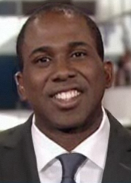 “America’s news media is increasingly covering the growing radicalism of the Republican Party and its democracy-eroding behavior. That’s a welcome shift. But it still isn’t going far enough,” Perry Bacon Jr. (pictured) wrote Friday for The Washington Post. For one, “the both-sides dynamic remains — big time. . . . much coverage still obscures or plays down the ‘Republican’ part of the story,” with gun-shy headline writers “blunting reporters’ work.” Secondly, “much of the story of GOP radicalization is happening at the state-level in solidly red areas,” and coverage is “still not as pervasive as it should be.” Third, “the story of GOP radicalization and democracy erosion isn’t being covered extensively or aggressively by a big, important chunk of the media — the morning and nightly news shows of the big broadcast channels (NBC, CBS, ABC) and in local television news. . . .”
“America’s news media is increasingly covering the growing radicalism of the Republican Party and its democracy-eroding behavior. That’s a welcome shift. But it still isn’t going far enough,” Perry Bacon Jr. (pictured) wrote Friday for The Washington Post. For one, “the both-sides dynamic remains — big time. . . . much coverage still obscures or plays down the ‘Republican’ part of the story,” with gun-shy headline writers “blunting reporters’ work.” Secondly, “much of the story of GOP radicalization is happening at the state-level in solidly red areas,” and coverage is “still not as pervasive as it should be.” Third, “the story of GOP radicalization and democracy erosion isn’t being covered extensively or aggressively by a big, important chunk of the media — the morning and nightly news shows of the big broadcast channels (NBC, CBS, ABC) and in local television news. . . .”
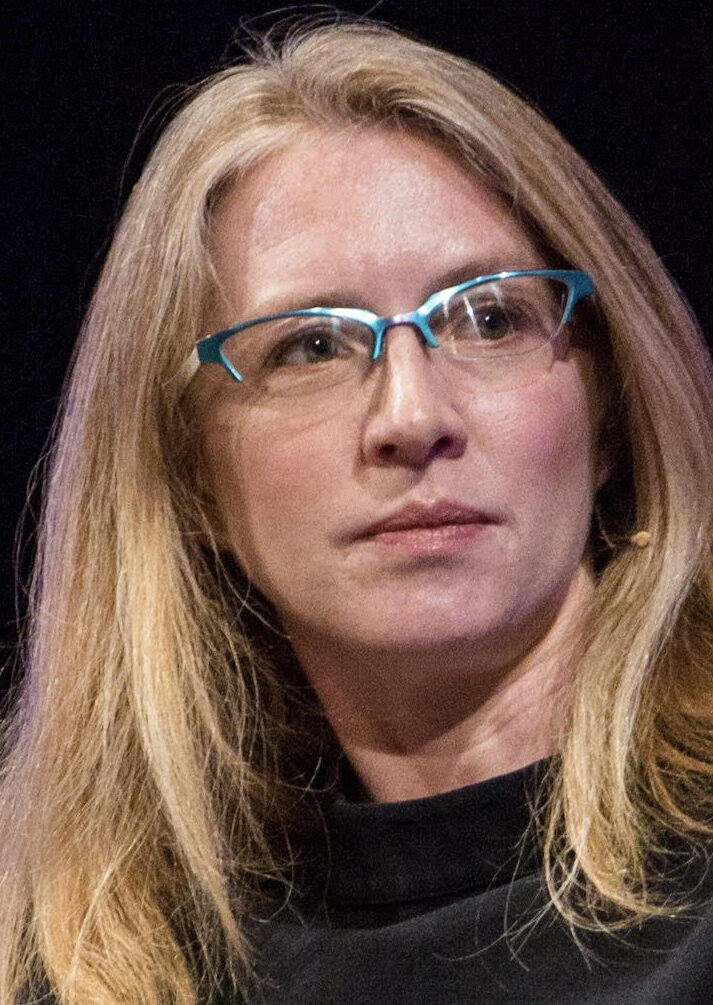 Jodie Ginsberg (pictured), a South African and a British national, will succeed Joel Simon as president of the Committee to Protect Journalists, the press-freedom group announced Monday. “Ginsberg, 44, has served since March 2020 as Chief Executive Officer for Internews Europe, part of the Internews alliance, one of the world’s largest international media development nonprofits. Ginsberg was previously the CEO of the renowned freedom of expression campaign group, Index on Censorship. . . . she worked for more than a decade as a foreign correspondent and newsroom leader at Reuters news agency.” Simon stepped down at the end of 2021 after leading the organization for 15 years. (Added Jan. 10)
Jodie Ginsberg (pictured), a South African and a British national, will succeed Joel Simon as president of the Committee to Protect Journalists, the press-freedom group announced Monday. “Ginsberg, 44, has served since March 2020 as Chief Executive Officer for Internews Europe, part of the Internews alliance, one of the world’s largest international media development nonprofits. Ginsberg was previously the CEO of the renowned freedom of expression campaign group, Index on Censorship. . . . she worked for more than a decade as a foreign correspondent and newsroom leader at Reuters news agency.” Simon stepped down at the end of 2021 after leading the organization for 15 years. (Added Jan. 10)
Jodie Ginsberg, a South African and a British national, will succeed Joel Simon as president of the Committee to Protect Journalists, the press-freedom group announced Monday.
“Ginsberg, 44, has served since March 2020 as Chief Executive Officer for Internews Europe, part of the Internews alliance, one of the world’s largest international media development nonprofits. Ginsberg was previously the CEO of the renowned freedom of expression campaign group, Index on Censorship. . . . she worked for more than a decade as a foreign correspondent and newsroom leader at Reuters news agency.” Simon stepped down at the end of 2021 after leading the organization for 15 years. (Added Jan. 10)
- with decades of experience in managing the business side of news organizations, will become the first chief operating officer of IndiJ Public Media,” Indian Country Today announced Thursday. “Kellogg, who served two terms as president of the Native American Journalists Association, will start his new role on Jan. 18. He will help develop and manage short- and long-term business strategies for IndiJ Public Media, the parent company of Indian Country Today, and will collaborate on efforts to grow the company’s reach, relevance, and revenue while delivering on the news organization’s mission and impact. . . “
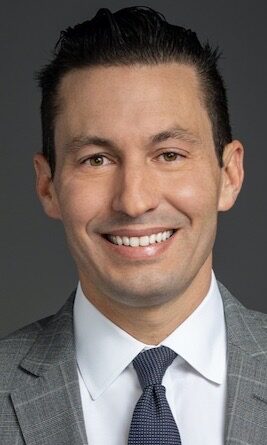 “Dax Tejera (pictured), who had been leading ‘This Week with George Stephanopoulos‘ since the beginning of the pandemic, has been named executive producer of the Sunday morning show,” Veronica Villafañe reported Dec. 20 for her Media Moves site. ABC News President Kim Godwin said in an internal message, “Dax assumed leadership of ‘This Week’ one week before the team had to adjust its production to the realities of the COVID-19 pandemic. Coming into this role during an extremely uncertain time, his vision has helped ‘This Week’ climb to new heights – the program is now #1 in Adults 25-54 for the first time in six years.”
“Dax Tejera (pictured), who had been leading ‘This Week with George Stephanopoulos‘ since the beginning of the pandemic, has been named executive producer of the Sunday morning show,” Veronica Villafañe reported Dec. 20 for her Media Moves site. ABC News President Kim Godwin said in an internal message, “Dax assumed leadership of ‘This Week’ one week before the team had to adjust its production to the realities of the COVID-19 pandemic. Coming into this role during an extremely uncertain time, his vision has helped ‘This Week’ climb to new heights – the program is now #1 in Adults 25-54 for the first time in six years.”
Greg Lee Jr. explains the Sports Journalism Institute in 2018.
- “The Sports Journalism Institute has selected 18 students to be part of its milestone 30th class,” the institute announced Friday. “The students from universities around the nation will come together in late May — either in person or virtually — to prepare for internships this summer at newspapers, networks and multimedia sports outlets. . . .The 18-member class is the largest for SJI, topping last year’s 17. . . .”
- The Online News Association Thursday announced “a board-approved investment in capacity support to kickstart the mission of The Pivot Fund. This new venture philanthropy organization aims to channel $500 million into community news outlets led by Black, Indigenous and other journalists of color. . . . The Pivot Fund was founded by Tracie Powell, a longtime ONA member, participant of the inaugural Women’s Leadership Accelerator cohort and a leader in philanthropic initiatives advancing racial equity and diversity in journalism.”
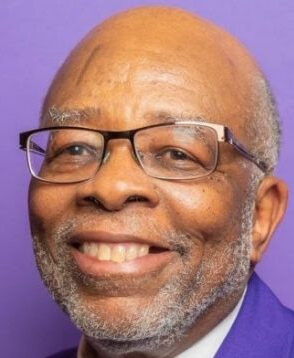 Roscoe Nance (pictured), the Clarion Ledger’s first Black sportswriter, is among the the Black College Football Hall of Fame’s Class of 2022 inductees. Nance “moved to USA Today in 1986 and covered the NBA for 15 seasons but continued to write about Black college athletics until his death in January 2020,“ Langston Newsome reported Thursday for the Mississippi Clarion Ledger in Jackson.
Roscoe Nance (pictured), the Clarion Ledger’s first Black sportswriter, is among the the Black College Football Hall of Fame’s Class of 2022 inductees. Nance “moved to USA Today in 1986 and covered the NBA for 15 seasons but continued to write about Black college athletics until his death in January 2020,“ Langston Newsome reported Thursday for the Mississippi Clarion Ledger in Jackson.
To subscribe at no cost, please send an email to journal-isms+subscribe@groups.io and say who you are.
Facebook users: “Like” “Richard Prince’s Journal-isms” on Facebook.
Follow Richard Prince on Twitter @princeeditor
Richard Prince’s Journal-isms originates from Washington. It began in print before most of us knew what the internet was, and it would like to be referred to as a “column.” Any views expressed in the column are those of the person or organization quoted and not those of any other entity. Send tips, comments and concerns to Richard Prince at journal-isms+owner@
View previous columns (after Feb. 13, 2016).
View previous columns (before Feb. 13, 2016)
- Diversity’s Greatest Hits, 2018 (Jan. 4, 2019)
- Book Notes: Is Taking a Knee Really All That? (Dec. 20, 2018)
- Book Notes: Challenging ’45’ and Proudly Telling the Story (Dec. 18, 2018)
- Book Notes: Get Down With the Legends! (Dec. 11, 2018)
- Journalist Richard Prince w/Joe Madison (Sirius XM, April 18, 2018) (podcast)
- Richard Prince (journalist) (Wikipedia entry)
- February 2018 Podcast: Richard “Dick” Prince on the need for newsroom diversity (Gabriel Greschler, Student Press Law Center, Feb. 26, 2018)
- Diversity’s Greatest Hits, 2017 — Where Will They Take Us in the Year Ahead?
- Book Notes: Best Sellers, Uncovered Treasures, Overlooked History (Dec. 19, 2017)
- An advocate for diversity in the media is still pressing for representation, (Courtland Milloy, Washington Post, Nov. 28, 2017)
- Morgan Global Journalism Review: Journal-isms Journeys On (Aug. 31, 2017)
- Diversity’s Greatest Hits, 2016
- Book Notes: 16 Writers Dish About ‘Chelle,’ the First Lady
- Book Notes: From Coretta to Barack, and in Search of the Godfather
- Journal-isms’ Richard Prince Wants Your Ideas (FishbowlDC, Feb. 26, 2016)
- “JOURNAL-ISMS” IS LATEST TO BEAR BRUNT OF INDUSTRY’S ECONOMIC WOES (Feb. 19, 2016)
- Richard Prince with Charlayne Hunter-Gault, “PBS NewsHour,” “What stagnant diversity means for America’s newsrooms” (Dec. 15, 2015)
- Book Notes: Journalists Follow Their Passions
- Book Notes: Journalists Who Rocked Their World
- Book Notes: Hands Up! Read This!
- Book Notes: New Cosby Bio Looks Like a Best-Seller
- Journo-diversity advocate turns attention to Ezra Klein project (Erik Wemple, Washington Post, March 5, 2014)
When you shop @AmazonSmile, Amazon will make a donation to Journal-Isms Inc. https://t.co/OFkE3Gu0eK
— Richard Prince (@princeeditor) March 16, 2018

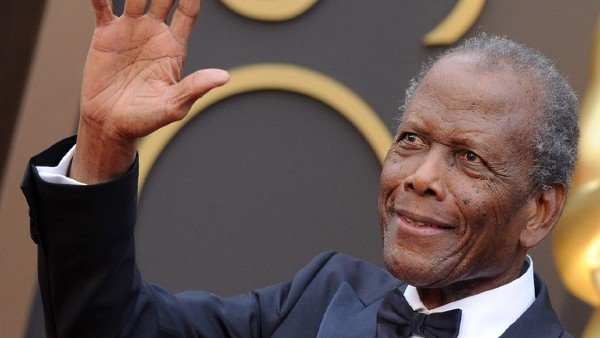
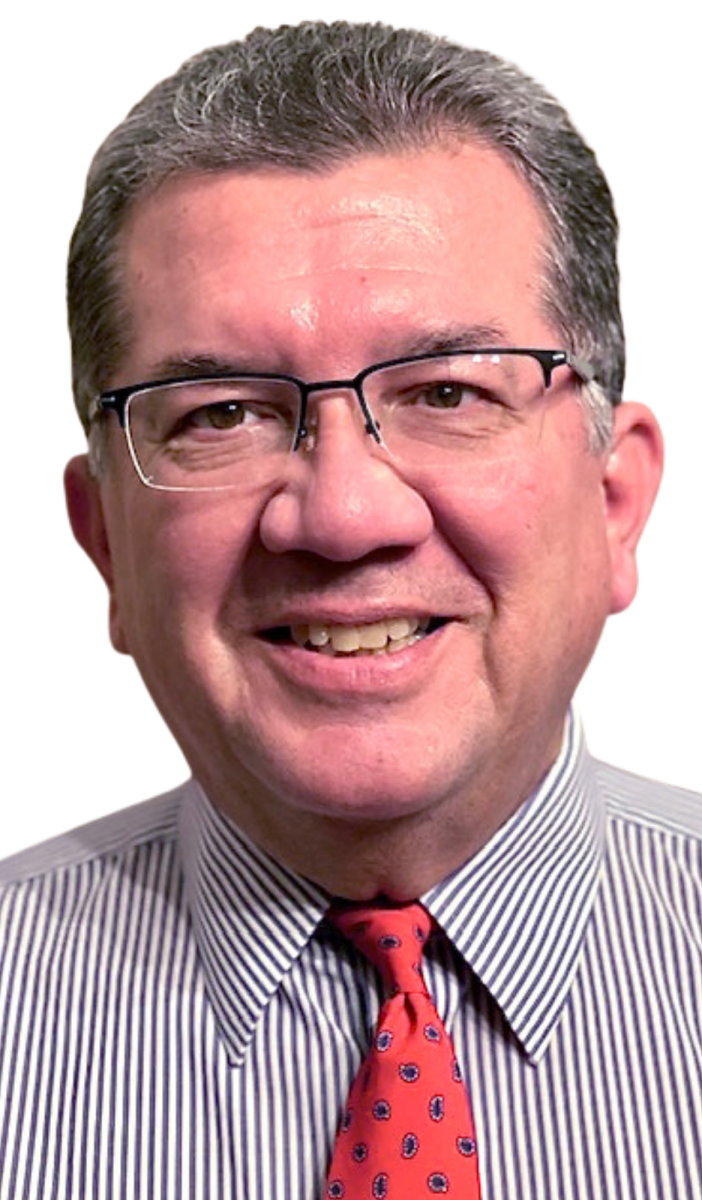 “
“